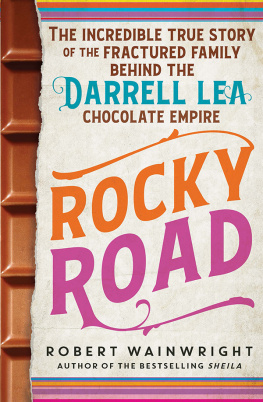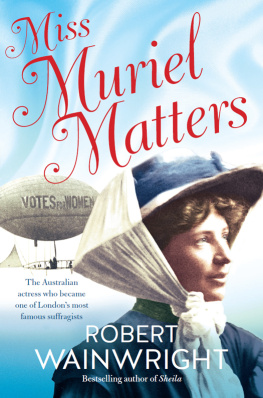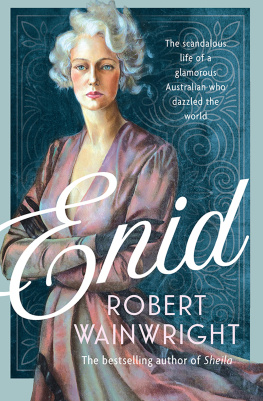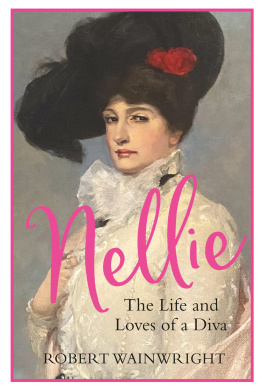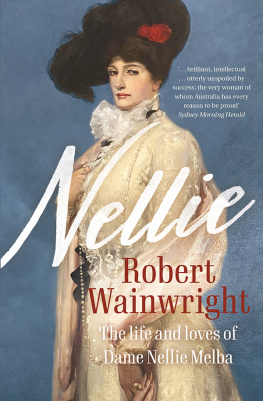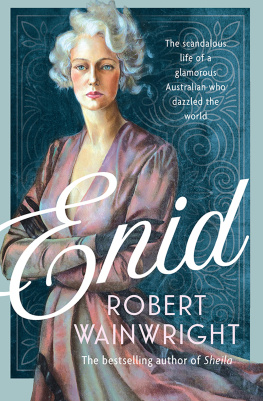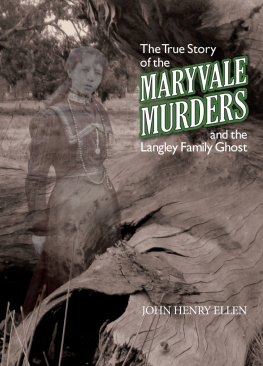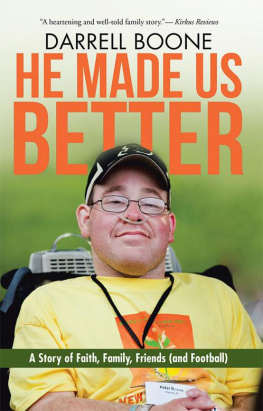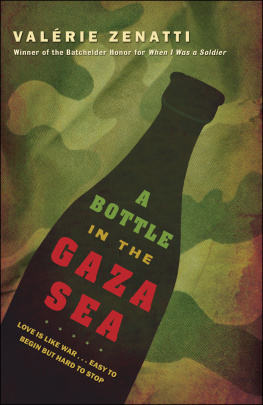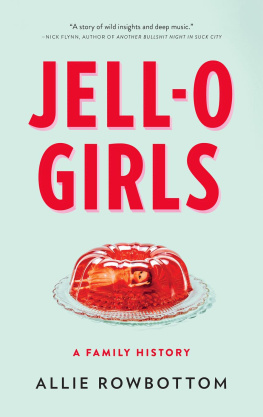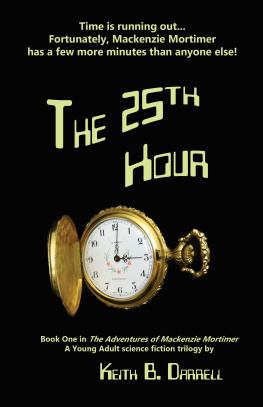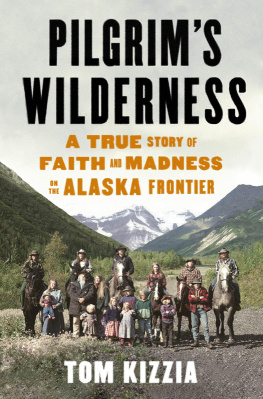Praise for Robert Wainwrights books
Well written, this book avoids sensationalism and simply prevents the facts. Austcrimefiction.org on The Killing of Caroline Byrne
a skilful portrait of a woman who cut a London dash but remained a quintessentially Australian country girl. Australian Womens Weekly on Sheila
The charm of Wainwrights biography is that he makes us see what an engaging, admirable and sometimes heroic quality it is to be a life-enhancer like Sheila. Daily Mail, on Sheila
A fascinating portrait of this astonishing woman. Ballarat Courier on Sheila
As social history Sheila Chisholms life is fascinating its undeniably enjoyable to read of all that glitter and gold. The Spectator, on Sheila
Nothing short of impressive Wainwright has revived a legend. The Lady on Sheila
While it is nigh impossible to capture what she was really like, her beauty and her boldness shine through this fascinating tale. Canberra Times on Sheila
Muriel Matterss name is apt: she certainly does matter [a] highly readable biography. Daily Mail on Miss Muriel Matters
A long-overdue biography of the most inspiring woman youve never heard of. All About History on Miss Muriel Matters
Wainwright has done a fine job of rescuing his protagonist from the footnotes of climbing history. He has restored the reputation of a man whose achievements were frequently overshadowed by the romantic fate of Mallory and the later triumph of Edmund Hillary. The Telegraph on The Maverick Mountaineer
Robert Wainwright has been a journalist for more than 30 years, rising from the grassroots of country journalism in Western Australia to a senior writer with the Sydney Morning Herald, where he was a three-time finalist in the prestigious Walkley Awards. His career has ranged from politics to crime, always focusing on the people behind the major news of the day. He is the author, amongst others, of Rose: The unauthorised biography of Rose Hancock Porteous, The Lost Boy, The Killing of Caroline Byrne, Born or Bred (the story of killer Martin Bryant), the bestselling Sheila, the award-winning Maverick Mountaineer and Miss Muriel Matters. Rocky Road is his twelfth book.
First published in 2018
Copyright Robert Wainwright 2018
Every effort has been made to trace the holders of copyright material. If you have any information concerning copyright material in this book please contact the publishers at the address below.
All rights reserved. No part of this book may be reproduced or transmitted in any form or by any means, electronic or mechanical, including photocopying, recording or by any information storage and retrieval system, without prior permission in writing from the publisher. The Australian Copyright Act 1968 (the Act) allows a maximum of one chapter or 10 per cent of this book, whichever is the greater, to be photocopied by any educational institution for its educational purposes provided that the educational institution (or body that administers it) has given a remuneration notice to the Copyright Agency (Australia) under the Act.
Allen & Unwin
83 Alexander Street
Crows Nest NSW 2065
Australia
Phone:(61 2) 8425 0100
Email:
Web:www.allenandunwin.com

ISBN 978 1 76029 155 6
eBook ISBN 978 1 76063 713 2
Cover design: Christabella Designs
Cover images: Shutterstock
To Andy and Dave. Special friends who made a difference in my life. Sadly missed.
It is often said that nothing in life is ever black and white, an idiom particularly apt when applied to families. Two children who share the same parents and upbringing can look back, as adults, and describe entirely different experiences.
A mother who insists on adherence to rules and routine can be perceived as a maternal rock to one child and a cruel autocrat to another. A gentle, distracted father can be seen as kind and loving to his eldest son or distant and uninvolved to the youngest.
There is no absolute truth, just lifeand eventsexperienced differently.
Add divorce, stepchildren or the complexities of adoption and it is inevitable that the intimate, often fragile dynamics of the family are affectedand an objective analysis of events becomes almost impossible to discern. Every life experience is valid, acceptance of difference necessary.
Rocky Road is the story of Monty and Valerie Lea and their blended family of four biological and three adopted children. On the surface, at least, it seemed a success, with dozens of photo albums and cannisters of film showing smiling children and happy times. But the reality was much more complex.
The four biological children would recall mostly happy childhoods under an engaging if slightly eccentric mother who taught them right from wrong and filled their lives with opportunity, although even their accounts would differ.
By contrast, the recollections of their adopted brothers and sister were rather darker, growing up in a household in which they were told they were not real Leas. Their inevitable difficulties as adolescents were misunderstood and mismanaged by a woman who diarised her own frustrations.
This is primarily the story of Valerie Lea and her three adopted children, their lives and search for identity and answers, set against the backdrop of the rise and fall of the Darrell Lea empire.
September 1953
The girl in the cotton dress stood alone in the white-walled room, clutching a paper bag and the tattered remains of her security blanket.
Instinct had told her, even at the age of four, that something was desperately wrong. Why was she here, in a city doctors surgery? Why had a man taken her photograph when they arrived and why did her mother, whom she rarely saw, hold her so tightly as they sat in the waiting room?
A woman in a nurses uniform appeared and knelt in front of the chair. Do you like sweets?
She nodded, unsure how to react.
The nurse offered her hand. Then come with me. There are chocolates in the next room.
The girl felt the grip around her waist ease, the warmth of her mothers arms gone. Taking it as a sign to go, she slipped off her lap and followed the woman into the other room.
The nurse pointed to the chocolates in a bowl on a table and quickly retreated. The door closed and the girl was alone. She eyed the sweets but did not touch them, something inside telling her they were rotten. In hindsight, many years later, the offering of those chocolates wrapped in shiny paper would take on a significant meaning.
The windows on the far side beckoneda possible escape route. She crossed the room, passed a giant desk, and stared through a towering pane of glass at the street beyond, the noise and bustle of the city of Melbourne in sharp contrast to the silence within. It offered no comfort.
The girl could hear voices in another room, the deeper tones of a man and a woman whose voices signified authority. The woman was not her mother, and they were coming for her. She sensed it. In that moment of utter despair, she decided that they, whoever they were, would never get her. She might be trapped physically, and in their control, but they couldnt touch her inside. She would never forget the feeling.
Gayle turned and faced the door.
A tall lady with a shining smile and steely eyes walked into the room. The lady was with the doctor, but he didnt bother to examine her. Instead, he told her that she was going home with the lady. She was her new mummy.

